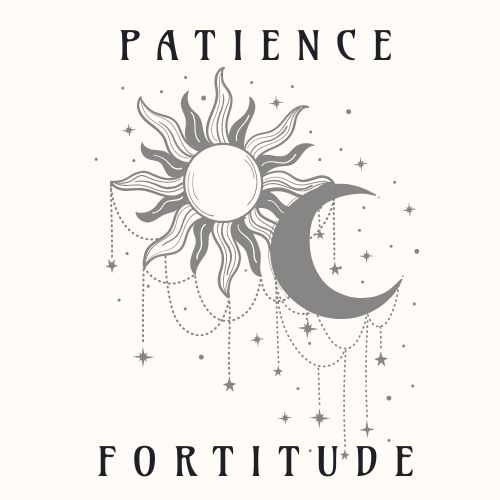I am slowly posting the entirety of Grieving Futures: Surviving the Deaths of My Parents, here on Patience & Fortitude for free. General warnings are in place: this book address grief, mourning, self-harm, anger, poverty, and pet death, all in the context of becoming an adult orphan in my twenties. You can still buy the book if you would like (doing so helps support my writing!).
Substance abuse and emotional breakdowns are not lightweight problems. Pretty much every aspect of the grieving process can cause the sufferer to take a wrong turn towards self-destructive behavior, especially during a bad week. Finances were another way I performed the dance of denial. Of all the long-lasting effects the early death of a parent can have on a young adult, money is quite possibly one of the most complex and damning.
Money earned or not earned during a person’s twenties can impact them well up into retirement. There are ways to get rich past the age of thirty, over course, and ways to lose everything when at fifty. What I am trying to get at is that money is powerful not just during a person’s day to day life but within the myriad of relationships and choices a person makes over the course of decades; its influence is, in a word, insidious.
Unless you are a profoundly well-balanced, mature individual, derailing a career in your twenties may lead to making decisions for the next ten years or so based on panic. You end up bouncing around, trying to find what sticks, or maybe you just jump ship every time a career option demands serious commitment. I am not talking about a logical, well-considered choice to change careers, but a situation where choices that once made sense are either impossible or ill-considered, and options that might be smart to follow through on are disregarded out of fear or a feeling of hopelessness.
I have already mentioned that after I graduated, I was floating along rudderless. I did not have a clear career path picked out, but I did have a path-of-sorts, in that I knew I was going to grad school. Given the economy of the era and my age, I could have just picked a specialty out of the hat and made a decent living at it. I had, in fact, narrowed my choices down to about three separate grad programs (each was a reach, as they were all top-of-the-field types of programs, but given my own alma mater I did at least have a shot). I did not have much of a plan but I was at least headed in the right direction. Then, I got derailed.
Remember that my parents’ deaths were protracted affairs; I did not wake up one morning, as some people do, and end the day as an orphan. I had a lot of time to watch the train wreck, but as I was watching from somewhere near the baggage car I was distracted from dealing with my own fate. I was not fortunate enough to live near a university with a good graduate program in any of my fields, and honestly I would not have made time for it if I had. I was entirely devoted to the role of caretaker, almost destructively so, and I stayed home. That is a separate issue, but probably common in the sense that whatever the circumstances, during the death and subsequent grieving process for a parent, children tend to put themselves last on the hierarchy of importance.
In a perfect universe, my parents would not have been so terrified of their mortality to the point of disregarding what was in their only child’s best interest. But they were dying and often in pain or confuzzled by drugs, so I do not blame them at all. There was no support group available to me and, anyway, I was too busy being strong for my family to even admit that I had needs or weaknesses. The result was that my crucial post-college phase was not spent working (gaining experience) or getting a higher degree (gaining credentials). When I finally turned back to that paradigm, I was so psychologically broken that it was like reading a familiar book in a foreign language: I knew the plot and the characters, but I still had no idea what was going on.
After Mother died I took a few courses at the local community college with a vague and uncertain thought toward an architectural degree. It was a complete change of plans from all prior career tracks and was both ill-advised and doomed to fail. It was something, though, and it got me out of the house a little during Poppa’s final year, although of course it went up in smoke when he died.
In the end, although I did not have a home anymore or any reason not to move on to do whatever I wanted, wherever I wanted, still I did not do it. I cannot stress how unimportant something like a “career plan” is in that situation, and how normal that unimportance is under those circumstances. As a young woman the expectation was that I would just keep moving forward, pick up where I left off, or perhaps start over. The gut punch is that grief takes away a lot of self-purpose. Grief made me forget that there was any reason for me to exist. I was not even anyone’s daughter anymore; how meaningless was it to be an employee? Or a student? Or anything?
I floated from job to job, aimlessly and without direction, for over ten years. It felt right in a comfortable, mindless way. It cost me dearly.
